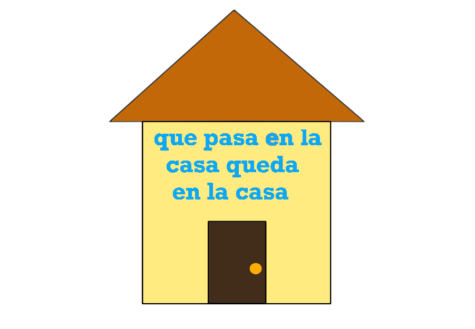Mental Health Stigma in the Latino Community
January 27, 2022

Welcome to the first article of La Comunidad Carnero! This column is for the Latinos at RHS, who need more representation in the media. The Rampage staff is here to support you and your voices! I’d like to begin this column by talking about a critical issue that impacts the Latino community: mental health. Thousands are afflicted with mental illness which affects our people too. Unfortunately, many don’t ask for the help they need to take care of their mind.
One of the main reasons the Latino community doesn’t seek mental help is because of language barriers. When several family members are emerging bilinguals and have a hard time speaking English, it can be difficult to describe issues to doctors. Translators are very useful, but sharing personal information through them may feel embarrassing.
There is also a stigma about sharing personal issues with others, even if they would be supportive. Negative or sensitive topics aren’t talked about at home, and it’s common thinking in our community that “what happens at home stays at home.”
Many may not seek help because they feel shamed or obligated to carry their burdens. They don’t want to bring unwanted attention to themselves or, in extreme cases, be called “crazy.” A lot of people can put off mental symptoms as physical ones, but the former will become worse if untreated. This is why it’s always important to seek help.
On many occasions, the community simply may not have the money or resources to afford a professional. These people could live in poverty or have less health coverage/insurance. A certain amount of the Latino population in the U.S. are also undocumented, which means they may fear seeking mental help because it could mean deportation. Teenagers carry the status of their families a secret or are the only ones with citizenship. That takes a toll on everyone’s minds. Discrimination makes us feel like we may not belong in America. Sadly, mental health is viewed as a luxury only richer, lighter-skinned Americans can achieve.
It’s vital that we start changing our mindset at RHS and in our homes. Sharing with loved ones or professionals is encouraged, and your feelings are always valid. Meditating, taking a break, and going outside are little things that could help your mental health. But if these simple activities aren’t helping, seeking professional help is one of the best things to do. Talk to your counselor, and if you don’t speak English, see if you can get someone to translate for you. There are a lot of hotlines like SAMHSA’s National Helpline (1-800-487-4889) which is free of charge, in Spanish, and confidential. We’re not alone. Our voices deserve to be heard because we have issues in life too. The important thing is to tackle our demons and overcome them with the help of others.




